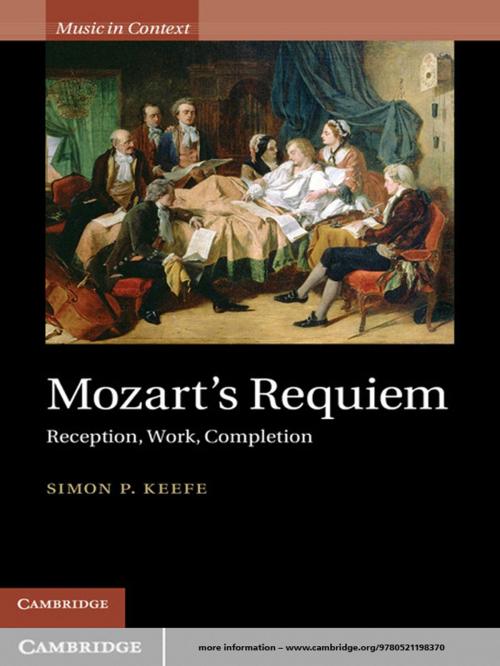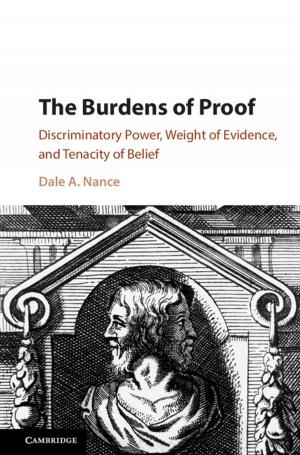Mozart's Requiem
Reception, Work, Completion
Nonfiction, Entertainment, Music, Theory & Criticism, History & Criticism, Reference| Author: | Simon P. Keefe | ISBN: | 9781139539548 |
| Publisher: | Cambridge University Press | Publication: | June 28, 2012 |
| Imprint: | Cambridge University Press | Language: | English |
| Author: | Simon P. Keefe |
| ISBN: | 9781139539548 |
| Publisher: | Cambridge University Press |
| Publication: | June 28, 2012 |
| Imprint: | Cambridge University Press |
| Language: | English |
Presenting a fresh interpretation of Mozart's Requiem, Simon P. Keefe redresses a longstanding scholarly imbalance whereby narrow consideration of the text of this famously incomplete work has taken precedence over consideration of context in the widest sense. Keefe details the reception of the Requiem legend in general writings, fiction, theatre and film, as well as discussing criticism, scholarship and performance. Evaluation of Mozart's work on the Requiem turns attention to the autograph score, the document in which myths and musical realities collide. Franz Xaver Süssmayr's completion (1791–2) is also re-appraised and the ideological underpinnings of modern completions assessed. Overall, the book affirms that Mozart's Requiem, fascinating for interacting musical, biographical, circumstantial and psychological reasons, cannot be fully appreciated by studying only Mozart's activities. Broad-ranging hermeneutic approaches to the work, moreover, supersede traditionally limited discursive confines.
Presenting a fresh interpretation of Mozart's Requiem, Simon P. Keefe redresses a longstanding scholarly imbalance whereby narrow consideration of the text of this famously incomplete work has taken precedence over consideration of context in the widest sense. Keefe details the reception of the Requiem legend in general writings, fiction, theatre and film, as well as discussing criticism, scholarship and performance. Evaluation of Mozart's work on the Requiem turns attention to the autograph score, the document in which myths and musical realities collide. Franz Xaver Süssmayr's completion (1791–2) is also re-appraised and the ideological underpinnings of modern completions assessed. Overall, the book affirms that Mozart's Requiem, fascinating for interacting musical, biographical, circumstantial and psychological reasons, cannot be fully appreciated by studying only Mozart's activities. Broad-ranging hermeneutic approaches to the work, moreover, supersede traditionally limited discursive confines.















